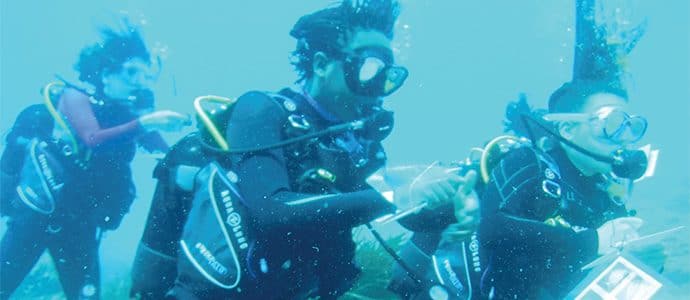Private School
4 min Read
Far-flung experiences enhance private education

September 23, 2018
Private School
4 min Read

September 23, 2018

Developing well-rounded young people ready to take on the world – it’s the goal at private schools across the country. International school trips are viewed as a key way to do just that.
These aren’t vacations. Rather, forays into diverse global locations bolster curricula and deepen learning. Teachers join students on the trips, which are developed by schools and reputable, experienced third-party organizations working with trusted international partners on the ground.
Helping local communities through environmental, social, or manual construction projects (building a school or water systems, for example).
Growing a broader worldview and understanding through immersion in another culture, such as language immersion trips or international trekking adventures.
Performing scientific field studies abroad, musical performances, etc.
Travelling to another country, meeting and working/learning with students there, then hosting them back home.

The outgoing global international program grew from joining the Round Square organization of schools 25 years ago. In the late ’90s, the school started developing things more in-house. Fast forward to today: there were 15 outgoing global trips in 2017/2018, with 11 embarking over the March Break. In the last few years, about 70 percent of graduates had participated in a big global experience. This year, the school is making it mandatory for all students to complete at least one international trip between grades nine and 12.
“We want to develop leaders here,” says Rob McGuinness, Assistant Head of School, Global Education, “to make sure they’ve got the skills and capacities to lead on a global stage.”
McGuinness says intercultural trips grow understanding of how culture is shaped by geography and history, and encourage students to examine their own cultural makeup. This readies them to work across cultures in the future.
Journeys have included language and culture studies in Germany and Austria, as well as in the parts of Spain with heavy Arabic influences. Examples of academics-focussed travels are a land and water biology field trip to game reserves and coral reefs in South Africa, and field studies in Honduras and the Peruvian part of the Amazon rainforest. Students in grades 11 and 12 have gone on treks to Ecuador and Nepal.

Last year, some students travelled to the Dominican Republic on a medical mission trip, working alongside doctors at the border with Haiti. It’s just one of the ways pupils can travel the world at HNMCS.
Over the years, mission trips have included working in local communities in Nicaragua, Kenya and India. Work in schools, Bible study and construction labour in the heat of the summer are typical features of this mission work. (The girls also get to visit amazing sites like the Taj Mahal.)
For a summer conservation biology course, girls have travelled to Croatia and Ecuador, diving and classifying animals and fish with scientists.
“We really want to empower them,” says Head of School Marilena Tesoro. “The world of tomorrow they’re going to be entering is a constantly changing world.”
Global travel helps students develop multiple perspectives they’ll need as future leaders addressing complex world problems. “That’s what the universities are telling us,” says Tesoro.
Trips to the U.S. have included grade sevens and eights attending a tech workshop at Harvard University in Boston. And a New York City excursion for students in grades 10 to 12 is arts- and history-based; they attend Broadway shows and do comparative studies at the city’s renowned big museums. In a recent jaunt to Washington, Director of Schools Kathryn Anderson says students got to meet U.S. Vice-President Mike Pence. “It caused lots of great conversation, for sure.”

Head of School Nancy Richards says her school’s global studies program is “a big differentiator”. Recent years saw the girls visit far-flung places as different as Bhutan and the Galápagos Islands.
Exchange programs are arranged with designated ‘sister schools,’ partner schools and Round Square schools. They have included students in grades six and seven travelling to Japan, then hosting the Japanese students back at their own school.
SMLS students choose the global experiences that interest them, learning what it means to be a part of the world community through trips to China, Singapore, India and Australia. It’s about developing leadership skills, gaining confidence and making global connections, says Richards.
“I wish I were younger,” she says. “I would love to go to this school!”